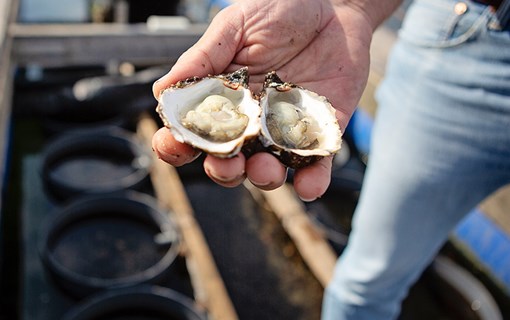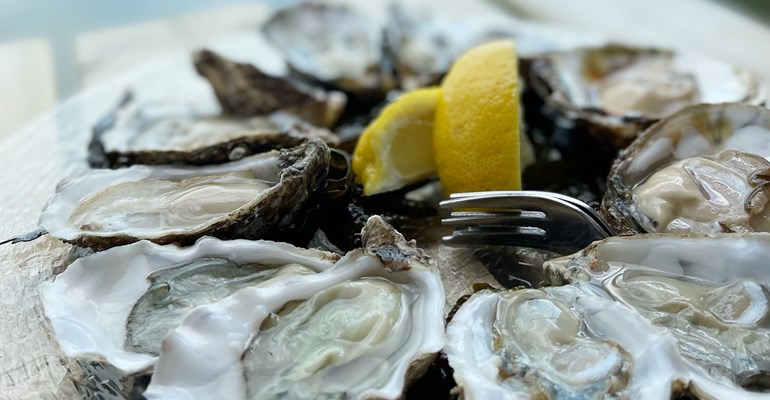
Taste the Oosterschelde
Hike

Zeeland is the land of oysters. There are many places where they can be enjoyed, but remember to come at the right time. One place not to miss out on is Yerseke, the centre of oyster production in Zeeland. Two of the best places here are Oesterij and Oesters & Bubbels. But there are plenty of other places in Yerseke where you can sample the delights of this marine mollusc, and indeed throughout Zeeland.
The flat oyster, with its unique taste, is now becoming less common. If you come across this sort, you should eat it raw, with a dash of pepper and lemon juice.
When you come to Zeeland, it’s worth your while booking an excursion out on the water. You’ll be able to find out more about oysters, as well as enjoy some fantastic scenery. You can also take a tour of the oyster beds in Yerseke and take part in an oyster tasting session in the nearby oystery. The oystery also organises other activities.
In Zeeland, oyster harvesting only takes place in the Oosterschelde estuary and in the Grevelingenmeer. The temperature of the water, the salt content and the purity of the water in these zones make them ideal places for oyster cultivation. The oysters settle as larvae in the oyster grounds. The creuse is suitable for eating after three years, whilst the flat oyster needs five to six years.
The oysters are fished in special oyster barges, which spread out their nets over the sea bed. Afterwards they are stored in oyster pits. The famous pits in Yerseke are connected to the Oosterschelde estuary. Here, the oysters are allowed to clean and settle. After a week or so they are ready for packaging. Why not combine a culinary experience with an active one on a hike or cycle ride?